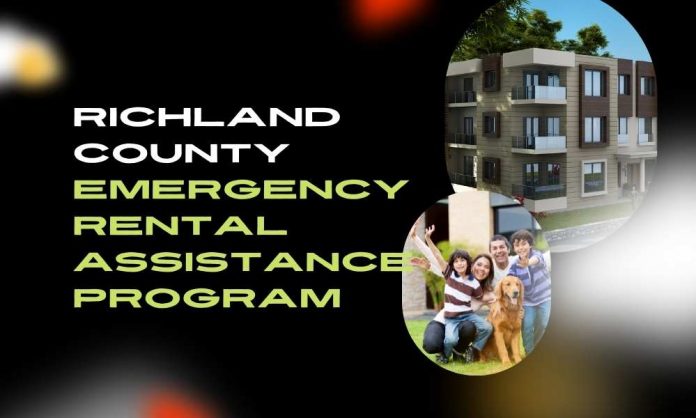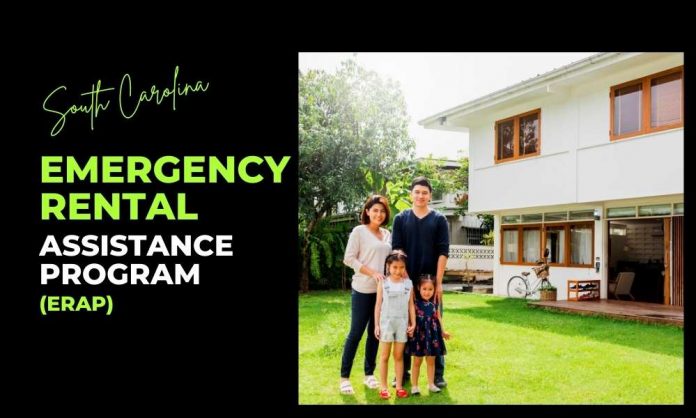Anderson County rental assistance programs
In Anderson County, funds from the Coronavirus Response and Relief Supplemental Appropriations Act of 2021 are being used to establish the COVID Relief Program (“CRF”). Rent and utility assistance will be provided to eligible Anderson County households through this program. AIM may use the funds to provide needy households with financial support as well as housing stability services if they qualify. Anderson County residency is required, as is responsibility for rent payment, as well as the determination that:
An “eligible home” is one in which at least one of the following people meets the following requirements:
- Because of COVID-19, you may be eligible for Pandemic Unemployment Assistance if you have a loss in household income, have incurred significant costs as a result of COVID-19, or have experienced financial hardship as a result of COVID-19.
- One or more members of the family may be in danger of being homeless or experiencing housing insecurity at any time.
- If the applicant is currently homeless, they must provide proof of an eviction that occurred within the last six months to prove their eligibility.
- Is earning a household income that is equal to or less than 80 percent of the Area Median Income.

Case managers will prioritize qualified houses according to the following criteria:
- Please keep in mind that the committee will not begin the application process until all required documentation has been received and reviewed.
- AIM will make every effort to prioritize those facing eviction, but federal law does not require it. Additionally, a week’s notice prior to the eviction date will be required. (This page was most recently edited on 11/1/21).
- Households with incomes less than or equal to 50% of the region’s median
- Families with at least one member who has been unemployed for 90 days prior to seeking for assistance are eligible.
- AIM is not responsible for lodging arrangements. We can present clients with a list of low-income housing options to choose from.
EXPENSES THAT ARE ELIGIBLE
- Rental arrears, including contracted late fees, cannot exceed 12 months; if they do not exceed $5,000, consideration will be given to assisting with future payments, providing the client’s ability to pay rent in the future. If you have any questions about this policy, please contact us. It will be necessary to obtain further approval from the ERAP funding source. (This policy will be in effect as of November 1, 2022)
- There is a rental deposit (no more than one month’s rent) as well as an additional three months’ rent or $5,000 (whichever comes first).
- The policy of the organization that assists you with your relocation into a new living arrangement requires the ability to pay for your living expenses in the future if you wish to continue receiving assistance. In instance, your rent cannot account for more than 50 percent of your total earnings.
- Utilities are past due (includes the following: electricity, gas, and water)
- Family members who have virtual school-aged children or adults who work from home can benefit from internet access (with proof). Occupation: 5/21/21 A/O The commitment must be individually evaluated and authorized by a supervisor before it can be made.
- Families that have been displaced can stay in a hotel or in an extended stay facility. The total cost of the project is $2000. This is the client’s obligation to ensure that the room is secure. (Current as of 7/26/21)
- REAPPLICATION REQUIREMENTS:1/11/2022 (Effective) Due to a large number of applications and limited funds, AIM is no longer accepting COVID Relief Reapplications, with the exception of the instances stated below. This includes incomplete applications made prior to November 11, 2022. In order to help the wider population of Anderson County, AIM will only accept first-time applications.Re-Application Exceptions:
- The client is still in the hospital or under the doctor’s care and has not been released to work.
- Within the last six months, a spouse has died.
EXPENSES THAT ARE NOT ELIGIBLE
- Telecommunication Services are a type of communication service that allows people to communicate with (Telephone or Cable)
- Any other expenses that aren’t specifically specified as permissible expenses
METHOD OF PAYMENT
- Upon receipt of the funds, they will be delivered directly to the property owner or property management firm listed on the tax bill, as well as any utility service providers that choose to participate in the CRF. (Revised on 11/1/21)
- When a landlord is not the owner of the property, he or she must submit one of the following documents (Rev 11/1/21):
- The original deed in connection with a recent acquisition
- Form of Power of Attorney Authorization
- The Personal Representative for the aforementioned property’s Estate
The duplication of benefits is strictly prohibited.
- An eligible household may not receive more than one type of financial assistance at the same time, including federal, state, and local assistance, for the same costs.
- It may be possible to receive financial assistance if you live in a federally subsidized residential or mixed-use property. However, you must ensure that the funds are not used to cover costs that have already been or will be reimbursed under other federal programs.
- If an eligible household receives a monthly federal subsidy (such as a Housing Choice Voucher, Public Housing, or Project-Based Rental Assistance), and the tenant rent is adjusted to reflect changes in income, the renter household may be eligible for ERA assistance for the portion of rent or utilities that are not covered by the monthly federal subsidy.
PREQUALIFICATION
To be considered for assistance, all customers must first complete a pre-qualification form. The pre-qualification application will be completed in DocuSign after you submit the pre-qualification form. You will receive an email with a link to DocuSign after you submit the pre-qualification application.
After clicking on the link that was emailed to you, you will be routed to a page where you can establish a username and password. If you need to access your account again, you should save your login name and password. In this way, you may keep track of important information and refer back to it at a later time if necessary.
You, the customer, will be able to access the COVID RELIEF FUND application once you have created a username and password for yourself. As part of the application process, you will be required to attach or upload supporting documentation. Following the completion of the pre-qualification form, an email will be sent to the applicant with a list of the documents that must be attached to the application.
-
- Photo identity and evidence of current address are required of all applicants.
- (Revised on 11/1/21) Complete Lease Agreement
- Interested parties should complete and sign the Landlord Verification Form as well as the Landlord Verification Request for Non-Property Owners, as well as the Landlord’s W-9 form, in order to get rental assistance.
- The client’s utility bills (in his or her own name) are required in order to receive utility assistance.
- COVID-19 Form for Financial Difficulty (Completed)
- PROOF OF EACH SOURCE OF INCOME HAS BEEN REQUIRED FOR THE PAST TWO MONTHS (To verify Adjusted Median Income)
- A form for self-certification of income is available here (if not receiving income, self-employed, or unable to provide documentation showing income)
- Income reduction has been proven since March 2020, according to the data available (ex. 2019 & 2020 tax forms, W-2, or 2 months paystubs)
If you are unable to complete an application on your own at this time, you may make an appointment with a representative who will come to your location to assist you. If you go to the “Program Details” button on the main page, you’ll be able to see a list of nearby locations. If you would like to schedule an in-person appointment, please contact the store directly.
Once your application has been fully completed and submitted, it will be instantly forwarded to Anderson Interfaith Ministries.
At this stage, the application will be evaluated for eligibility and processed accordingly. In the review process, clients who are facing eviction will be given top priority above others. (Revised on 11/1/21)
REVIEW OF APPLICATIONS
- It is the responsibility of the AIM Reviewer to ensure that all required documents are given and are legible (see Prequalification #3 for a list of required documents).
- If any of the papers are missing, the reviewer will contact you through email to request that they be sent to him or her. From the date of this notice, you will have five (5) business days in which to respond.
- If the Reviewer concludes that you do not qualify for COVID-relief assistance, the Reviewer will send you an email outlining the reasons for his or her determination.
PROCESS OF APPROVAL
All essential information is reviewed by the Intake Specialist/Case Manager in order to determine whether or not the client meets all of the requirements to be eligible for financial services. The Case Manager assigns a priority to each case based on whether the client has been unemployed for 90 days or if the client’s AMI is less than 50 percent. When you use the CPD Income Eligibility Calculator – HUD Exchange, you can find out how much you qualify for based on the income component of your application and the number of persons in your household.
Following approval, the Case Manager will contact the Landlord and/or Utility supplier to get a payment commitment (s). This may help to keep you from getting disconnected or evicted from your home.
The Case Manager will then contact you by phone or email to update you on the status of your case. (The request has been approved or denied.)
Within two weeks of approval, checks will be delivered directly to the owner listed on the tax bill, the property management company, and/or the utility provider(s). Other forms of evidence will be required by Third Party Property Managers.
DENIED
If the Case Manager concludes that you do not qualify for COVID-relief assistance, the Case Manager will issue you a denial letter within two weeks of making the assessment. The denial letter will outline the grounds for the refusal. Kindly consider resubmitting your application if your circumstances change as a direct or indirect result of COVID-19.
Clients may be refused for a variety of reasons, including:
- COVID-19 was not to blame for the hardship.
- It is impossible to verify all relevant information.
- The customer is unable to provide proof of the emergency or hardship request.
- Income does not fall below the necessary 80 percent of AMI.
- Within 30 days of filing the application, documents requested by the AIM Reviewer or Case Manager were not returned. (updated 11/1/21)
PROCESS OF GRIEVANCE:
If you are denied assistance, Anderson Interfaith Ministries has established a grievance committee made of community leaders who will hear your case and make a decision. This group consists of the vice president of a local hospital, the executive director of Vocational Rehabilitation, the president of the Anderson Chamber of Commerce, a social worker from Anderson School District 5, and the director of the local United Way.
Alternatively, if a client believes their denial is incorrect or has a dispute, they should contact Kristin King-Brock, Executive Director of Anderson Interfaith Ministries, at 864-224-9256 or kristi.king-brock@aimcharity.org.
The committee meets twice a month and will review appeals as quickly as possible in order to determine their status.

Originally from Toronto, Canada, Denise Madison, age 34, is an expert in housing policy and rental assistance. Denise earned her Master’s in Public Administration from McGill University, focusing her thesis on the effectiveness of rental assistance programs in major Canadian cities. After graduation, she worked with the Canadian government before transitioning to a consulting role in the United States, aiding in the enhancement of federal housing policies and programs. Denise is known for her practical workshops and seminars aimed at landlords and tenants, fostering better understanding and compliance with housing laws. When not at work, Denise cherishes time with her husband and their three young children, exploring the outdoors and teaching them about the importance of community involvement.



